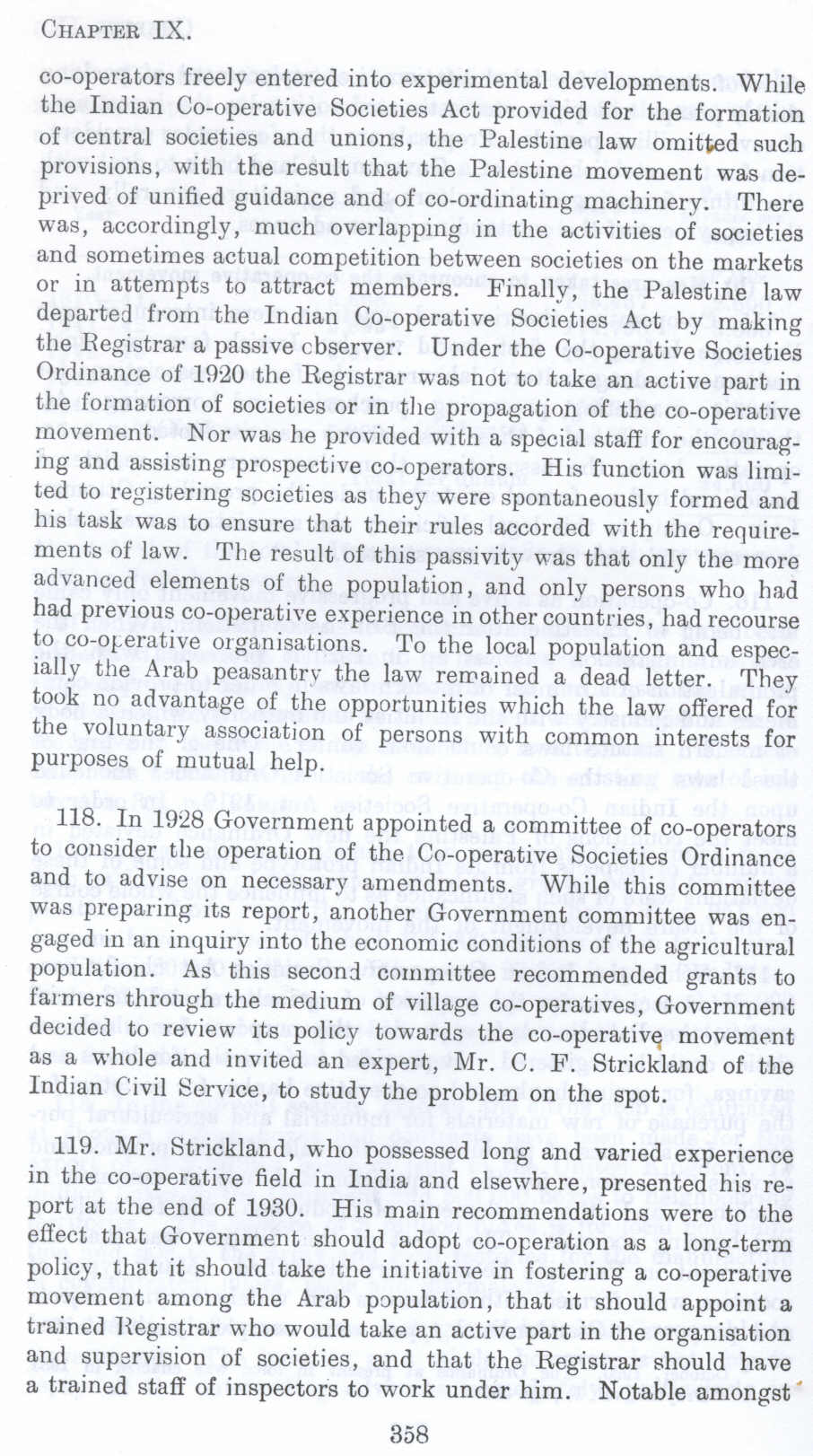| Prev | Next |  |
| Prev | Next |
| PalestineRemembered | About Us | Oral History | العربية | |
| Pictures | Zionist FAQs | Haavara | Maps | |
| Search |
| Camps |
| Districts |
| Acre |
| Baysan |
| Beersheba |
| Bethlehem |
| Gaza |
| Haifa |
| Hebron |
| Jaffa |
| Jericho |
| Jerusalem |
| Jinin |
| Nablus |
| Nazareth |
| Ramallah |
| al-Ramla |
| Safad |
| Tiberias |
| Tulkarm |
| Donate |
| Contact |
| Profile |
| Videos |
British Mandate: A Survey of Palestine: Volume I - Page 358 |
Disclaimer
The above documents, article, interviews, movies, podcasts, or stories reflects solely the research and opinions of its authors. PalestineRemembered.com makes its best effort to validate its contents.


Post Your Comment
*It should be NOTED that your email address won't be shared, and all communications between members will be routed via the website's mail server.
co-operators freely entered into experimental developments. While the Indian Co-operative Societies Act provided for the formation of central societies and unions, the Palestine law omitted such provisions, with the result that the Palestine movement was deprived of unified guidance and of co-coordinating machinery. There was, accordingly, much overlapping in the activities of societies and sometimes actual competition between societies on the markets or in attempts to attract members. Finally, the Palestine law departed from the Indian Co-operative Societies Act by making the Registrar a passive observer. Under the Co-operative Societies Ordinance of 1920 the Registrar was not to take an active part in the formation of societies or in the propagation of the co-operative movement. Nor was he provided with a special staff for encouraging and assisting prospective co-operators. His function was limited to registering societies as they were spontaneously formed and his task was to ensure that their rules accorded with the requirements of law. The result of this passivity was that only the more advanced elements of the population, and only persons who had had previous co-operative experience in other countries, had recourse to cooperatives organisations. To the local population and especially the Arab peasantry the law remained a dead letter. They took no advantage of the opportunities which the law offered for the voluntary association of persons with common interests for purposes of mutual help.
118. In 1928 Government appointed a committee of co-operators to consider the operation of the Co-operative Societies Ordinance and to advise on necessary amendments. While this committee was preparing its report, another Government committee was engaged in an inquiry into the economic conditions of the agricultural population. As this second committee recommended grants to farmers through the medium of village co-operatives, Government decided to review its policy towards the co-operative movement as a whole and invited an expert, Mr. C. F. Strickland of the Indian Civil Service, to study the problem on the spot.
119. Mr. Strickland, who possessed long and varied experience in the co-operative field in India and elsewhere, presented his report at the end of 1930. His main recommendations were to the effect that Government should adopt co-operation as a long-term policy, that it should take the initiative in fostering a co-operative movement among the Arab population, that it should appoint a trained Registrar who would take an active part in the organisation and supervision of societies, and that the Registrar should have a trained staff of inspectors to work under him. Notable amongst
Page 358